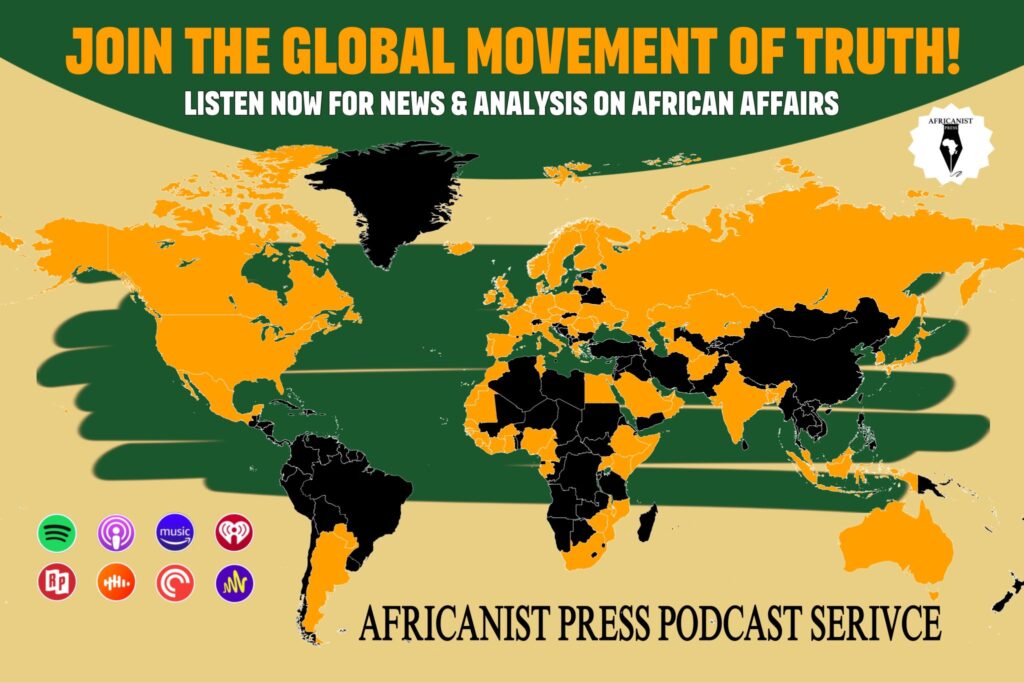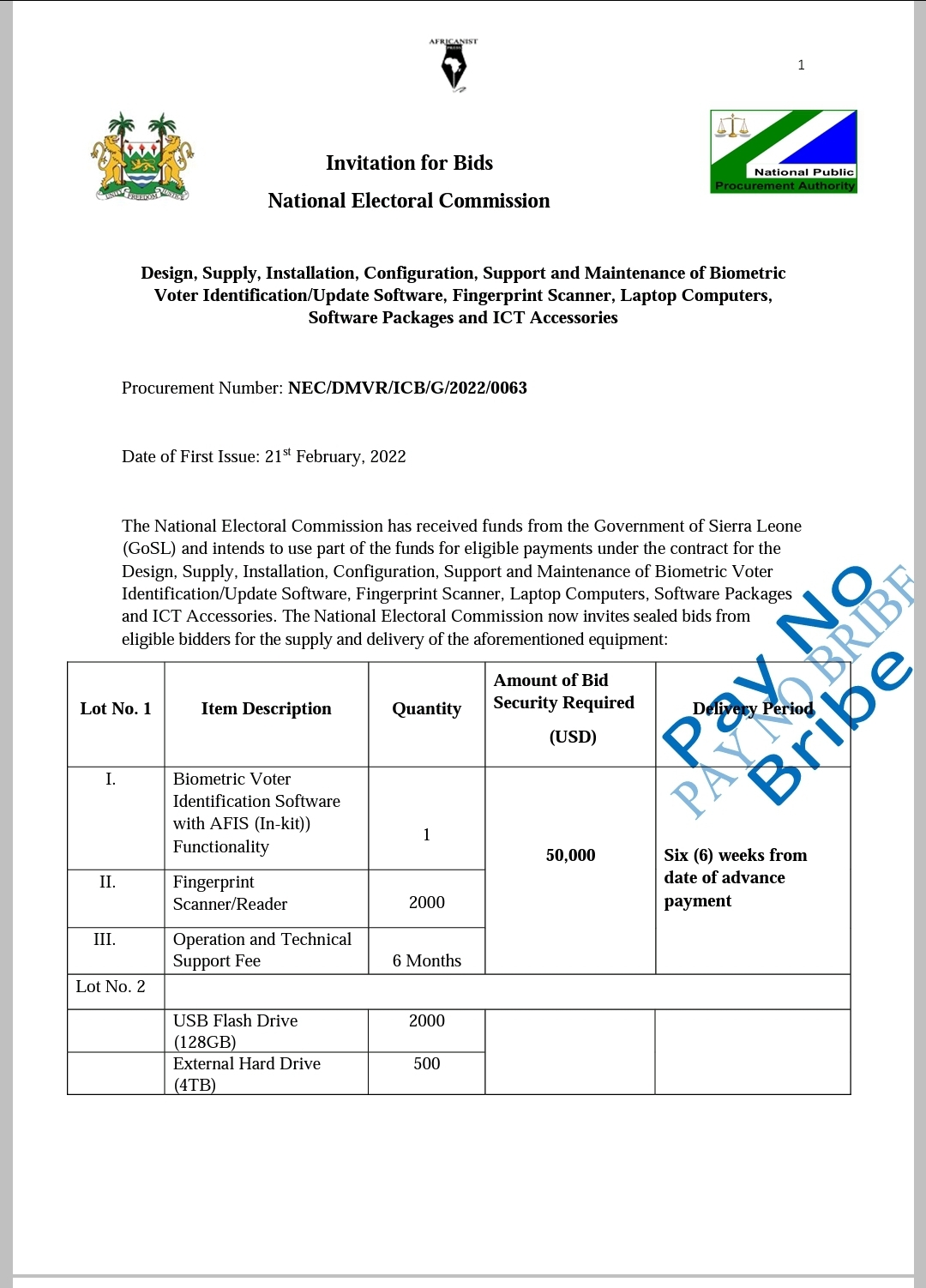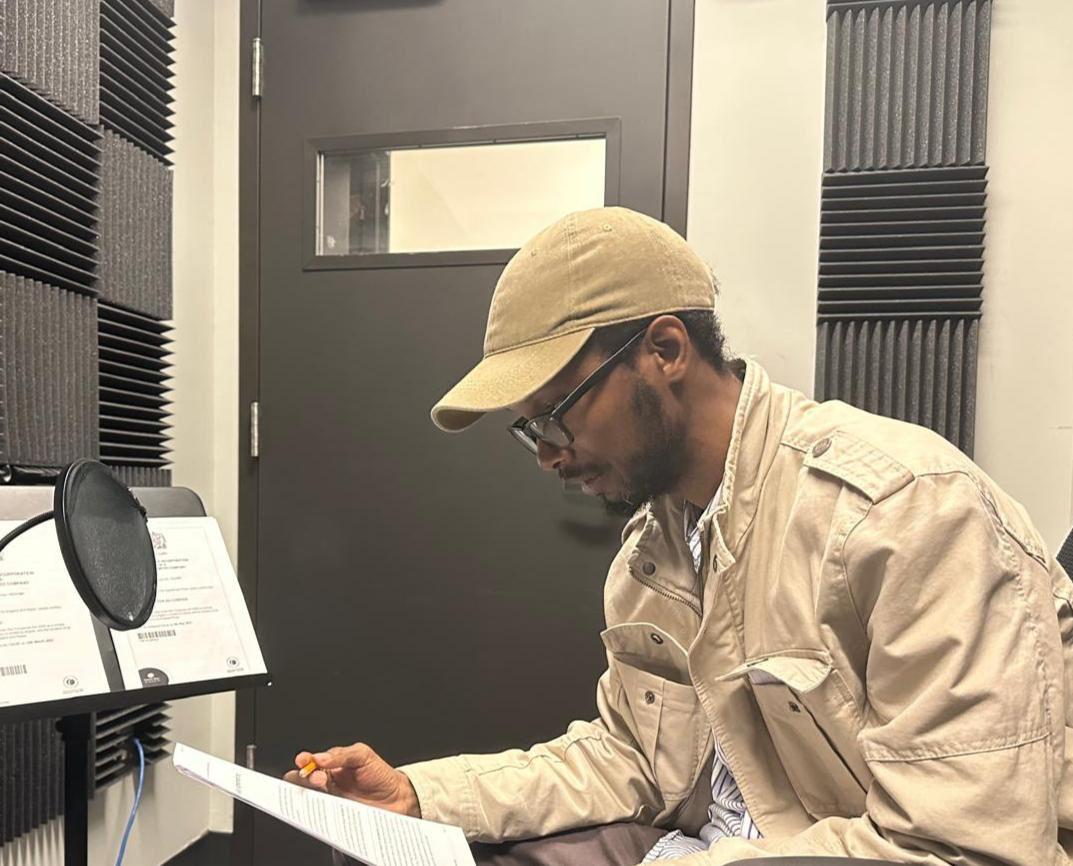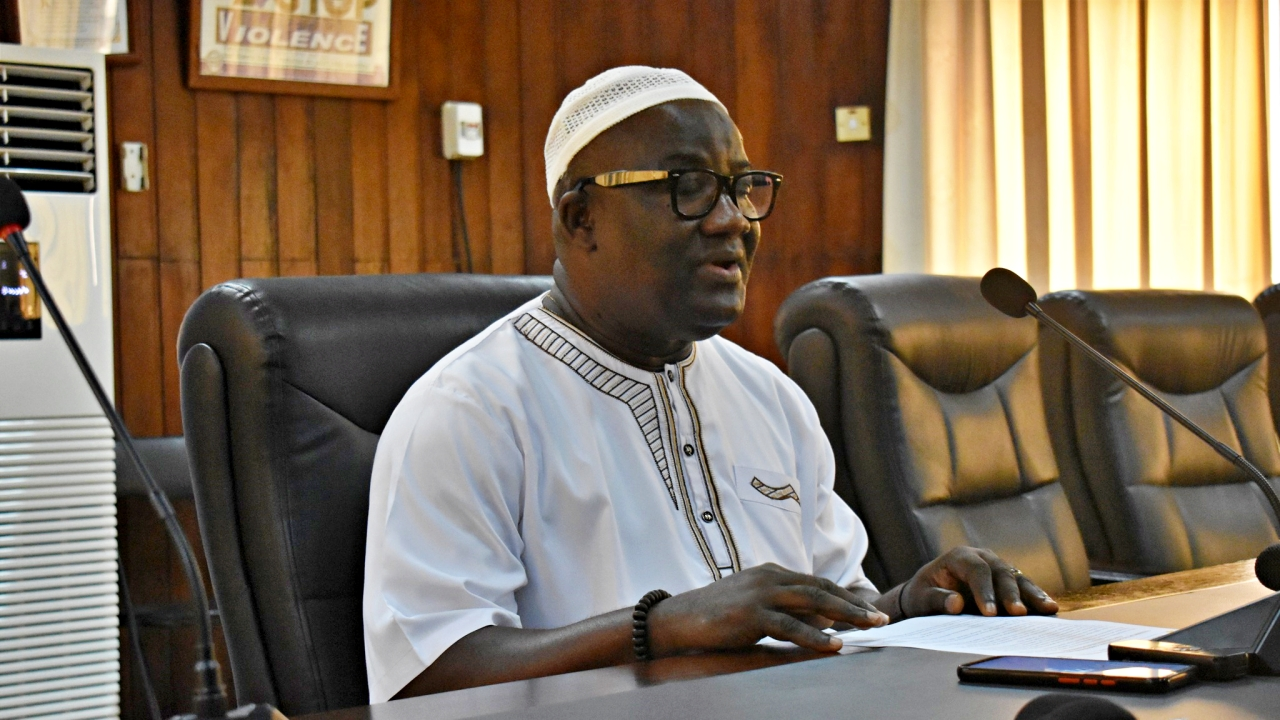By Chernoh Alpha M. Bah, Matthew Anderson, and Mark Feldman
The Electoral Commission of Sierra Leone (ECSL) held a press conference on Monday 19th September 2022 in Freetown to provide updates on the voter registration exercise. The Commission also attempted to respond to the Africanist Press publication on ECSL’s US$10 million procurement scandal. The Africanist Press had published a reporton 12th September 2022 showing that the voter registration process was fraught with technical and bureaucratic challenges owing largely to a corrupt procurement process. Hundreds of videos and other evidence collected by Africanist Press show that thousands of potential voters who turned up at voter registration centers, mostly in Freetown and in cities across the north of the country, were unable to register due to faulty technology. This is despite millions of dollars in procurement funds allocated for technology and other voter registration equipment.
Despite these confirmed problems observed during the first phase of the registration exercise, Chief Electoral Commissioner, Mohamed Konneh announced that registration was in progress and that 1,345,176 voters were registered nationwide. These figures, according to Konneh, were from 80% of registration centers across the country. Unfortunately, ECSL did not provide detailed breakdown of the registration figures per district and wards to help ascertain the veracity of the registration statistics. Equally so, the Commission also failed to explain why technical challenges have persisted throughout the first two weeks of the registration exercise despite millions of dollars in procurement funds allocated for technology and other voter registration equipment. In fact, ECSL officials tried to waive off the US$10 million procurement scandal as “misinformed allegations.” In the statement, ECSL officials claimed that procurement procedures were followed, and that the National Public Procurement Authority (NPPA) endorsed the “evaluation decisions.” To further trivialize the issue, ECSL stated that the US$10 million procurement budget was not from the European Union but were drawn directly from the government of Sierra Leone.
From this point, it is important to note that ECSL’s statement did not deny that more than US$10 million was allocated for the procurement of the required technological equipment and software for the voter registration exercise. Rather, the Commission accepted the Africanist Press report on the US$10 million, but the Commission’s contention is that the misappropriated funds were not from the European Union but from the Sierra Leone government. It must be stated that the European Union was not mentioned in the Africanist Press report. Also, ECSL argued that they did not violate the procurement laws and that the evaluation process was endorsed by the NPPA, yet the Commission provided no documentary evidence in support of its denial.
Thus, Africanist Press provide the following additional details on the subject of the US$10 million election procurement funds and how the misappropriation occurred. At the same time, we also show how ECSL and NPPA are jointly working to cover-up this unprecedented election corruption scandal in Sierra Leone’s history.
ECSL placed the request for contracts NEC/DMVR/ICB/G/2022/0063 on public notice on 21 February 2022, inviting eligible companies to submit sealed bids for the supply of 2000 laptop computers (2TB), 2000 laptop-carrying boxes, 2000 fingerprint scanners, 2000 USB flash drives (128GB), 500 external hard drives (4TB), and a list of other voter registration accessories and software. The bid notice documents are attached with this publication.
Thirteen companies submitted bids, including Bintex Incorporated Ltd, Conciel Ltd, FutureCom Enterprises, A.A Enterprises, Orchid Ventures Limited, Amsoft Technologies and Innovation Ltd, Gladiators Technology and General Services Limited, Axon Consortium, Steps Trading, Tiwaii Memory Masters Limited, Intelligent Card Production Systems Limited, Infinity ICT and General Merchandise, and Larubasa Investment (Ghana).
On 29 April 2022, ECSL’s Executive Secretary William Addo-Davies informed bidding companies that the Commission granted Infinity ICT and General Merchandise the contract because the company submitted the lowest bid. This letter is published on the Africanist Press website and is now released with the documents accompanying this publication. ECSL stated that Infinity won the contract based on lowest bid criteria, although documents uncovered by Africanist Press on the evaluation process show that Infinity’s proposed contract offer of US$7,475,700 was higher than the amounts offered by at least two other companies, Orchid Ventures (US$7,186,626) and Bintex Incorporated Ltd (US$5,800,700). These two companies matched Infinity ICT and General Merchandise on all seven criteria points used to evaluate the bids. In a normal bidding process, these criteria would lead to the selection of Orchid or Bintex, or plausibly, to an invited additional information process.
Africanist Press discovered that Orchid and Bintex, for example, fulfilled all the listed bidding requirements, including NASSIT and NRA clearances, business registration certificates, evidence of similar experience, and updated audited financial statements. Africanist Press found that Orchid and Bintex even provided manufacturer’s authorization, which Infinity did not include in its bidding documents. ECSL, nonetheless, awarded Infinity the contract without providing any other reason as to why the company was selected over the rest of the other companies outside of the false claim that Infinity had the lowest bid. The bid documents showed that the rejected companies were more qualified than Infinity and had more proven capabilities and lowest bid offers. In their proposal, Infinity ICT and General Merchandise showed no other competitive advantage over the other companies. This evaluation document has also been published on the Africanist Press website and has been included in the list of documents accompanying this publication.
Africanist Press further discovered that a third-party supplier identified as Laxton Group was then subcontracted, again through Infinity ICT and General Merchandise, to deliver the voter registration equipment and software. After reviewing invoices and financial correspondence, we found that Laxton accepted the subcontract, which is to cover the entire procurement, for US$2,247,100. This amount that is nearly 80% lower than the proposed contract price of over US$8.5 million awarded to Infinity ICT and General Merchandise for the same project.
During our investigation, Africanist Press reviewed invoices from ECSL records and found that a specific invoice #637 issued on 14 June 2022 in the name of Laxton requested from ECSL the amount of US$224,710.00 as 10% advance payment on the voter registration contract. Correspondence by ECSL’s Executive Secretary, William Addo-Davies dated 15 June 2022, instructs Bank of Sierra Leone (BSL) officials to transfer the amount of US$213,963.00 from ECSL/NEC’s BSL Account # 011 200 8440 to Infinity ICT and General Merchandise’s USD Account # 003 001 100 165 412 164 held at the Sierra Leone Commercial Bank in Freetown. Central Bank records show that BSL transferred the funds to the Sierra Leone Commercial Bank on 16 June 2022 (at about 12:15PM) in Sierra Leone. We also found that two weeks later on 29 June 2022, another US$409,294.58 was paid through SWIFT transfer (via Standard Chartered Bank South Africa – SCB/SA) in the name of Infinity as additional payment of 20% on the said contract.
From the above, Africanist Press asserts that Infinity ICT and General Merchandise was awarded the contract without fair competition and a transparent bidding process, contrary to ECSL claims and in violation of the Public Procurement Act, 2016. Section 37(1) of the Public Procurement Act specifically provides that “public procurement shall be undertaken by means of [an] advertised open bid processes, to which equal access shall be provided to all eligible and qualified bidders without discrimination” and “that letters of notification informing unsuccessful bidders of the reason for which their respective bids were unsuccessful must be sent to the bidders.”
Africanist Press also examined the National Public Procurement Authority (NPPA) database on awarded contracts in FY2022 and found discordance between NPPA’s records on the contracts and ECSL’s financial records for the same contracts awarded to Infinity and Laxon. ECSL’s financial documents show that an US$8.5 million contract was awarded to Infinity which, in turn, subcontracted Laxon on a US$2.2 million offer on the same contract. However, the NPPA database suggests that Infinity had a separate contract of US$8.5 million and Laxon had a separate contract of US$2.2 million, which means that ECSL spent US$10,844,155 on laptop computers, fingerprint scanners, and associated voter registration software alone. This contradicts the information on the bidding documents and ECSL’s financial records. Thus, the NPPA database on the contracts contain details that contradict detailing of the bidding notices and ECSL financial transactions relating to the payments. Also, NPPA, in its efforts to cover-up the ECSL scandal, presented procurement details that does not match the details on the ECSL bid notice and BSL’s payment records for the said contracts, thereby raising a crucial question on whether the more US$10 million was used for the stated purposes.
In addition to the US$8.5 million contract awarded to Infinity for the supply of 2000 computers and associated voter registration equipment and software, Africanist Press also discovered another US$1.2 million contract was similarly awarded to Felicity Solar Technology (SL) Limited. The Felicity Solar Technology contract NEC/DMVR/ICB/G/2022/0062 was granted for the purchase of 1,850 portable rechargeable solar-powered generators and 1,850 extension cords with surge protector accessories. We discovered an invoice issued on 31 May 2022 in the name of Felicity Solar Technology requesting an amount of US$385,725.00 as advance payment of 30% from the US$1,285,750.00 contract awarded for the supply and delivery of the portable solar-powered generators. ECSL is yet to provide evidence that the listed solar-powered generators and surge-protectors were also delivered.
Considering the above facts – supported by documentary evidence – we conclude the following:
One, that the Electoral Commission of Sierra Leone (ECSL) awarded two procurements contracts worth over US$10 million to two Freetown companies that did not show technical capacity to supply the requested voter registration technology and software for the country’s upcoming elections in June 2023.
Two, that despite the conflicting documentary evidence showing that over US$10 million in electoral funds had been spent on procurement of technology for the voter registration exercise, Africanist Press found no evidence that the supposed registration equipment was actually delivered.
Three, that ECSL is yet to provide documentary evidence showing that Infinity Information Communication Technology and General Merchandise that was offered US$8.5 million contract to supply laptop computers, fingerprint scanners, and associated accessories, and Felicity Solar Technology (SL) Limited which was offered another US$1.2 million contract for the purchase of 1,850 portable rechargeable solar-powered generators and 1,850 extension cords with surge protector accessories had delivered the listed equipment and materials
Four, That the conflicting details between NPPA’s database and ECSL’s bidding and financial records on the said contracts clearly points to a joint institutional effort to cover-up the biggest corruption in Sierra Leone’s election history, which warrants an anti-corruption investigation.
Five, that the Sierra Leone Parliament – especially the opposition parliamentary leaders – clearly have a case of grand corruption that would potentially undermine the credibility of the 2023 elections, and the entire public elections infrastructure in Sierra Leone, if this ECSL procurement scandal is not genuinely investigated.
We have attached the ECSL Bid Documents with this publication documents to help provide additional information on the details of ECSL procurement scandal and the collective institutional and political efforts to sweep it under the carpet.




